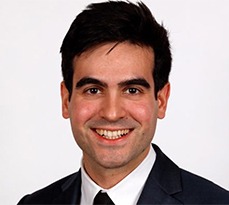


Cambridge Judge Business School faculty members Dr Jeremy Hutchison-Krupat, Professor Stelios Kavadias and Cambridge Judge PhD alumnus Dr Antoine Feylessoufi were honoured for their research papers at the annual meeting of the Institute for Operations Research and the Management Sciences (INFORMS).
The awards were made by the TIMES (Technology Innovation Management and Entrepreneurship Section) of INFORMS.
The 2020 TIMES Best Paper Award was won by Jeremy, University Senior Lecturer in Innovation & Operations Management, and Stelios, Margaret Thatcher Professor of Enterprise Studies in Innovation and Growth, for their paper “Strategic resource allocation: top-down, bottom-up, and the value of strategic buckets”, which was published in the INFORMS journal Management Science.
The paper investigated the process used by managers in allocating resources to a strategic initiative in choosing between a decision process that dictates the resource level (top-down) and one that delegates the resource decision and gives up control in favour of more precise information (bottom-up).
The Best Dissertation Award by the TIMES division, sponsored by the Lazaridis Institute, was won by Antoine for his dissertation “Adoption of innovations: modeling the interplay of behavioural biases, incentives and network structure”.
Antoine’s dissertation explores a conceptual gap in the technology-adoption literature by showing the impact of relative benefits in the decision to adopt novel technologies and practices. Owing to behavioural biases, individuals are not exclusively motivated by the absolute benefit from using the new practice, but also by how this benefit compares to what others are getting. For example, studies have shown that some individuals tend to increase or decrease their energy or water consumption when made aware of their neighbours’ consumption rate.
Through a series of evolutionary game theoretical models, Antoine shows that these behavioural considerations can hinder or promote adoption of novel practices in large organisations in unexpected ways. For instance, he finds that embedding ‘innovation champions’, as often advocated by the popular business press, may not always have the desired effect.
The dissertation further provides recommendations for management on how to leverage monetary incentives, training, and team structures to encourage (or in some cases discourage) the adoption of new practices.


